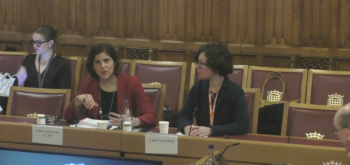Nearly 700 people have been imprisoned for not being able to pay their council tax since 2010 with a further 7,000 handed suspended orders threatening imprisonment, according to a new research. Barrister Chris Daw QC, writing a report for the Social Market Foundation (here), points out that England is the only country in Europe where people can be sent to prison for not paying a local tax. The report explains that the power to imprison for up to three months for non-payment of the tax was ‘a hangover from the deeply unpopular and short-lived’ poll tax introduced under the Thatcher government in 1990.
 According to the research, the rate of council tax debt has increased by 40% in the past six years with debt charities warning that these arrears now rival credit card debt as their primary concern. More and more people are facing the threat of imprisonment from a law that is described by Daws as ‘anachronistic, unfair, uneconomic and inhumane’. ‘I question how the poor and vulnerable can have confidence and trust in the legal system, when a law like this operates to target only them,’ the barrister writes.
According to the research, the rate of council tax debt has increased by 40% in the past six years with debt charities warning that these arrears now rival credit card debt as their primary concern. More and more people are facing the threat of imprisonment from a law that is described by Daws as ‘anachronistic, unfair, uneconomic and inhumane’. ‘I question how the poor and vulnerable can have confidence and trust in the legal system, when a law like this operates to target only them,’ the barrister writes.
The report argues that women are disproportionately affected by council tax enforcement as they are more likely to have council tax bills in their own name and women who flee domestic abuse are still obliged to pay council tax. According to the report, such women are often care givers and face losing custody of their children, as well as the roof over their heads and jobs if sent to prison. Imprisonment does not remove the debt leaving them to fall further into poverty.
The research reveals that enforcement is ‘a postcode lottery’ and some 180 out of 279 local authorities did not use the threat of imprisonment. Of the councils that did use this power, Bradford was responsible for deploying one in five of all prison enforcement processes and commitment orders. According to the research, 20% of those imprisoned are done so unlawfully. Imprisonment should only occur if those who have not paid showed ‘wilful neglect or wilful refusal’. To establish this those going before a magistrates’ court should have a standard means check and, according to the study, this process is not being done resulting in unlawful imprisonment.
The law was scrapped in Wales following the case of Melanie Woolcock, a single mother from Bridgend in Wales who was given an 81-day jail sentence in 2016 for failing to pay her council tax. Not well enough to work and receiving benefits, she had racked up £4,742 in council tax debts. It was her case that inspired Chris Daws to campaign for the law to be reformed. ‘I have been a criminal defence lawyer for over 25 years and not much shocks me. This did,’ he wrote. Charities are now campaigning for this law to be revoked in England. A petition to revoke this law has just passed 11,000 signatures requiring the Government to respond (here).







